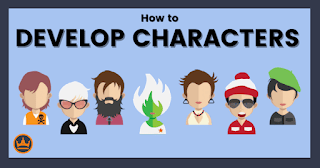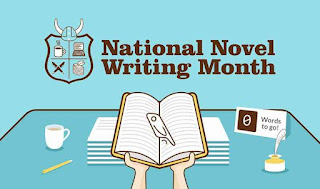Think of the last time a friend or close acquaintance of yours surprised you - not like jumped out and said, "Boo!" but did something that made you think, "I did not see that coming." Whether they bought you dinner for no reason or went on a tirade about Estonia, think of that moment and how you processed that. How did you add that to your mental file of everything you knew about that person? More importantly, think about what changed about your overall opinion about them.
This is what people do - they surprise us from time to time. We learn about them. We add information and get a better feel for who they are, but sometimes we reshape our thoughts. More to the point, we accept that the person is more than what we once believed, and we grow a little as well.
In writing, however, it is too easy to forget this little fact, and we write about characters where we don't have all the information. In fact, often we go in with very little actual knowledge of the character other than how it fits into the narrative. This is okay - when we start writing, we start learning and the character grows. However, sometimes when we get stuck in our writing and don't know what our character needs to do or how they will resolve a situation, it's because we don't know that character well enough to find the answer. The character hasn't surprised us yet.
When I get hung up on a character's motivations or natural response to a situation, I give myself an opportunity to understand them a little better. I start "asking" the character questions, and really thinking about the answers and how they fit into their overall story. The questions don't have to relate to the story; in fact they can be innocuous questions you would ask any person. But when you do this, really think about the answers and why those answers fit in. If you get stuck, ask your character these questions, and also ask why those were the answer:
- What is their favorite color?
- What is the favorite moment from their childhood?
- Who would they have voted for?
- Who is their favorite celebrity?
- What would they want on a pizza?
- What is their first thought when they wake up?
- Do they give to charity?
Yes, these are simple questions, but often we don't think about these things when we are focused on the story arc. As we ask them and justify the answers, we start filling in the blank areas and understanding the whole of the character a lot more. We also start thinking about the character not just as a tool for pushing the story, but as an actual person. And the more real they are, the more we are able to get past our hang-ups about what a character might do and instead start writing again.
Of course, there are a wealth of questions we can ask our character. The secret is to understand them on other levels, and start putting together the little pieces. This added dimension will make the storytelling more natural and give it a smoother flow. And yes, occasionally the characters might surprise you now and then.





